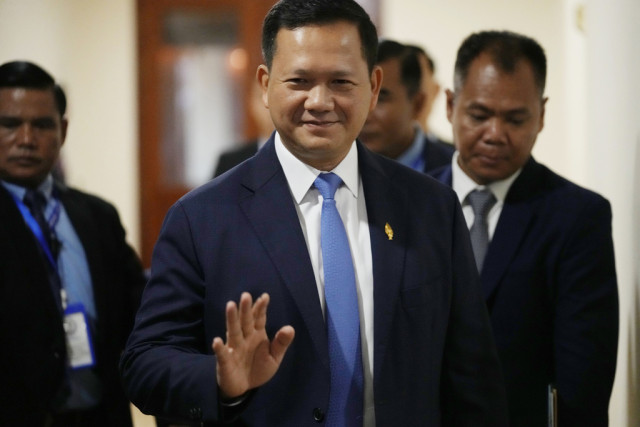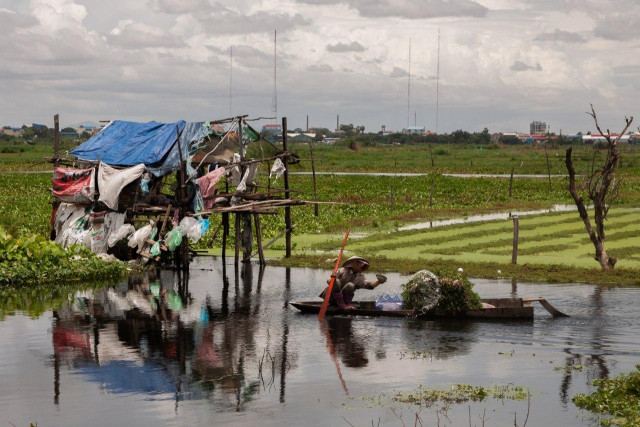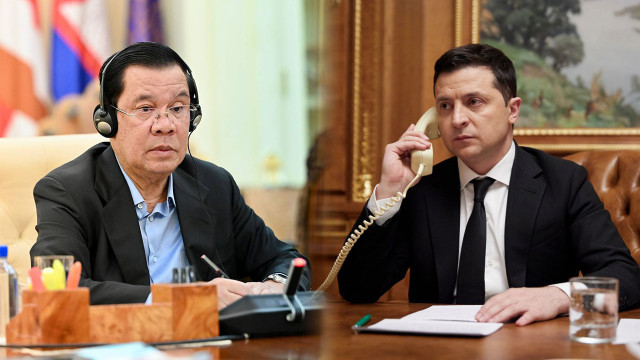Will Hun Manet Follow in His Predecessors' Footsteps of "Keeping the Old, Increasing the New?”

- By Manghout Ki
- September 4, 2023 10:50 AM
The Cambodian People's Party (CPP) has long been known for its pragmatic and strategic approach to governance, often encapsulated in the phrase "Keeping the old, increasing the new." This strategy, aimed at maintaining continuity while infusing new blood into the party, has played a pivotal role in sustaining the party's dominance in Cambodian politics.
As the 7th legislature under the leadership of H.E. Hun Manet takes power in 2023, the significant increase in the number of government-leadership members has sparked both acceptance and criticism. In this opinion piece, we will explore whether Hun Manet is likely to follow in the footsteps of his predecessors by examining the potential benefits of this strategy for the CPP.
To understand the CPP's "Keeping the old, increasing the new" strategy, we must look at the historical context. Since its inception, the party has navigated the challenging terrain of Cambodian politics, facing both internal and external pressures. This strategy has allowed the CPP to maintain stability and adaptability throughout the years.
One of the most significant advantages of maintaining a sizable number of experienced party members in government positions is the preservation of continuity and stability. These veteran officials possess institutional knowledge and an understanding of the complex political landscape in Cambodia. This ensures that the government can efficiently address critical issues and maintain a consistent policy framework.
Incorporating new members, while crucial for innovation and fresh perspectives, can sometimes lead to disruptions and learning curves. By keeping a substantial number of experienced officials, Hun Manet's government can build upon the achievements of its predecessors without losing momentum. This continuity can be especially beneficial in times of crisis or when navigating delicate diplomatic matters.
Critics argue that the high number of government leadership members could lead to inefficiency and bureaucracy. However, an alternative perspective suggests that this strategy serves as a unique capacity-building mechanism for the CPP. By including a diverse range of individuals in leadership positions, the party can nurture a broad pool of talent, ensuring that the next generation of leaders is well-prepared.
Moreover, having a large government leadership team can provide opportunities for mentorship and knowledge transfer from seasoned officials to newcomers. This intergenerational exchange of wisdom and expertise can foster a strong and cohesive party with a deep bench of capable leaders.
The world is constantly evolving, and so is Cambodia's political landscape. The CPP's strategy of "Keeping the old, increasing the new" allows the party to adapt to changing times effectively. While experienced officials provide stability, the infusion of new members brings fresh ideas and perspectives to the table.
Hun Manet's government can benefit from this combination of continuity and innovation. It can ensure that the CPP remains relevant and responsive to the needs and aspirations of the Cambodian people. In a rapidly changing world, a party that can evolve while maintaining its core values and principles is more likely to succeed.
A broader leadership team can enhance the CPP's ability to engage with various segments of Cambodian society. This inclusivity can help bridge gaps and build trust among different demographics. It also sends a message that the party is open to diverse perspectives and is willing to work with a wide range of stakeholders.
Hun Manet's government can use this approach to foster cooperation and collaboration, both domestically and internationally. By having a larger number of officials with different backgrounds and expertise, the CPP can effectively engage with a broader spectrum of political actors and institutions.
In conclusion, the CPP's strategy of "Keeping the old, increasing the new" has been a cornerstone of its enduring success in Cambodian politics. While the increase in the number of government leadership members under H.E. Hun Manet's leadership has garnered mixed reactions, it is essential to consider the potential benefits of this approach.
Maintaining continuity and stability, building capacity, adapting to changing times, and expanding political outreach are all crucial elements of the CPP's strategy. These advantages can contribute to the party's continued relevance and effectiveness in addressing the challenges facing Cambodia in the 21st century.
As we look ahead, it remains to be seen how Hun Manet's government will navigate the delicate balance between tradition and innovation. However, history suggests that the CPP's time-tested strategy has served it well, and it is likely to continue playing a pivotal role in shaping Cambodia's political landscape in the years to come.
Ki Manghout is an independent researcher in comparative politics and international relations.















